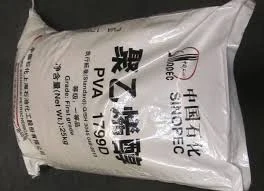The Role of Cellulose in Industrial Applications
Cellulose, a complex carbohydrate, is the most abundant organic polymer on Earth. It is primarily found in the cell walls of plants and is a key component that provides structural support. Its unique properties make cellulose an invaluable resource in various industrial applications, spanning from textiles to food production and beyond. This article explores the diverse uses of cellulose in industry, highlighting its significance in promoting sustainability and innovation.
One of the most noteworthy applications of cellulose is in the textile industry. Cellulose fibers, derived from sources such as cotton, flax, and wood pulp, are used to produce fabrics that are breathable, durable, and biodegradable. The versatility of cellulose allows it to be processed into different textures and finishes, making it suitable for a wide range of clothing and home textiles. Additionally, the increasing consumer demand for sustainable fashion has spurred the development of eco-friendly cellulose-based textiles. Brands are now exploring innovative ways to produce regenerated fibers, like viscose and lyocell, which are derived from sustainably sourced wood and offer a lower environmental impact compared to traditional synthetic fibers.
In the food industry, cellulose serves multiple functions, making it an important ingredient in various food products. It acts as a stabilizer, thickening agent, and dietary fiber, enhancing the texture and nutritional profile of foods. Cellulose derivatives, such as carboxymethyl cellulose, are widely used in processed foods to improve viscosity and prevent separation. Moreover, as the focus on health and wellness grows, cellulose is gaining popularity as a dietary fiber supplement, promoting digestive health and providing a feeling of fullness. Its inert nature and stability under various conditions make it an ideal additive in a variety of food applications.
cellulose for industrial

The paper and packaging industries also heavily rely on cellulose. As a key raw material for producing paper products, cellulose not only contributes to the physical properties of paper, such as strength and durability, but also supports sustainability efforts. With the rising awareness of deforestation and environmental issues, the demand for recycled paper and sustainable sourcing of cellulose has increased. Advances in recycling technology allow for the recovery of cellulose fibers from used paper products, which can then be reprocessed and used to create new paper, thus reducing waste and conserving resources.
In the construction industry, cellulose is utilized in the form of insulation materials. Cellulose insulation, made from recycled paper products, is an eco-friendly alternative to traditional insulation materials. It is non-toxic, efficient in thermal performance, and helps in reducing energy consumption in buildings. The use of cellulose in construction aligns with the broader trend towards sustainable building practices, ultimately contributing to the reduction of carbon footprints.
Moreover, cellulose shows promise in the realm of biodegradable plastics. As the world grapples with the consequences of plastic pollution, researchers are investigating the potential of cellulose-based bioplastics. These materials can reduce reliance on fossil fuels and minimize waste in landfills, promoting a circular economy. Cellulose-based plastics can be used in various packaging applications, offering a sustainable alternative to conventional plastic options.
In conclusion, cellulose is a versatile and indispensable resource in numerous industrial applications. Its properties not only enhance product performance but also contribute to sustainability efforts across various sectors. As industries continue to seek environmentally friendly solutions, the importance of cellulose will undoubtedly grow, leading to innovative applications that harness its potential while supporting a more sustainable future. The future of cellulose in industry is bright, promising advancements that align technology with environmental stewardship.
-
A Comprehensive Guide to Methyl Ethyl Hydroxyethyl Cellulose: Applications and Industry InsightsNewsNov.24,2025
-
Understanding Methyl 2 Hydroxyethyl Cellulose: Uses, Benefits & Industry InsightsNewsNov.24,2025
-
Hydroxyethyl Methyl Cellulose HEMC: Industrial Uses, Benefits & Future TrendsNewsNov.23,2025
-
HEMC Cellulose: Versatile & Sustainable Industrial Polymer | YoungcelNewsNov.23,2025
-
Methyl Hydroxyethyl Cellulose: Versatile Building Block for Industry & SustainabilityNewsNov.23,2025
-
CAS 9032 42 2: Understanding Polyvinyl Alcohol's Impact on Industry & SustainabilityNewsNov.22,2025




